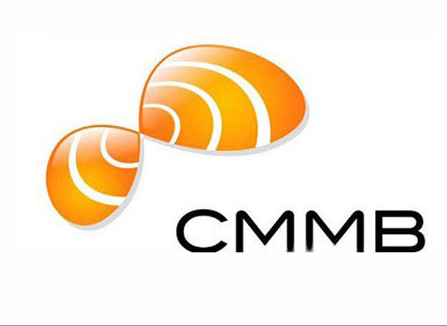
This month Harvey Weinstein, the famed (and sometimes feared) Hollywood film producer and studio boss, has been on a promotional roll. No wonder. In the coming days, one of Weinstein's new films, The Intouchables, will go on general release in the US.
本月,好莱坞著名(有时也让人害怕)的电影制片人、电影公司老板哈维•温斯坦(Harvey Weinstein)忙于宣传。这毫不奇怪。未来几天,温斯坦的新片之一《无法触碰》(The Intouchables)将在美国公映。
As stories go, the film is undoubtedly heartwarming; it features a quadriplegic who strikes up an unlikely friendship with a black immigrant in Paris. But the film is in French, with subtitles. And while Weinstein has had some unlikely wins before (think of the silent film The Artist, which won five Oscars), it could be a challenge to persuade American audiences to watch a subtitled, arty film about physical disability. Especially when it competes with films such as Spider-Man 3, when Americans are on vacation.
就情节而言,这部电影无疑暖人心房;本片讲述的是巴黎一名四肢瘫痪者与一名黑人移民建立起似乎不可能的友谊。但这部片子的对白是法语,配有字幕。虽然温斯坦以前赢得过一些意料之外的奖项(如荣获五项奥斯卡奖的默片《艺术家》(The Artist)),但说服美国观众观看一部关于身体残疾的带字幕的文艺片可能是一项挑战,尤其是这部电影要在美国人度假期间和《蜘蛛侠3》(Spider Man 3)展开竞争。
But as Weinstein embarks on his trendy gamble, there is something else equally intriguing at work in the visual entertainment world. A couple of weeks ago, I attended the New York premiere of the HBO series The Newsroom, a television series based on a CNN-style newsroom. This was a glitzy, fascinating affair, full of big names in the media and arts, who duly purred with pleasure when Aaron Sorkin, the series' creator, silkily declared that his show was intended as a "love letter" to the media world.
但在温斯坦走上他的时髦赌博之路之际,在视觉娱乐世界里还有一些同样耐人寻味的动态。几周前,我参加了HBO的电视剧《新闻编辑室》(The Newsroom)的纽约首映式。这是一部以美国有线新闻网(CNN)新闻编辑室为原型的电视连续剧。这是一场令人目眩神迷的盛会,到场的全是媒体和艺术界的大腕。当这部电视剧的创作者阿伦•索尔金(Aaron Sorkin)温和地宣布,这部作品是给传媒界的"情书"时,来宾们发出会心的轻笑。
But what was most memorable about the event was not the actual show (which in my view was somewhat patchy), but the fact that a television series was generating so much intellectual buzz and frisson in the first place. After all, these days it is popular for pundits to decry the dumbing down of the US media in general, and television in particular. And in statistical terms, the majority of the output on American network and cable screens these days is indeed dominated by reality shows, sports, partisan news and popular films.
首映式令人印象最深刻的不是电视剧本身(在我看来有点拼拼凑凑的),而是一部电视系列剧竟能引发这么多知识界人士的评论与兴奋。毕竟,如今评论人士喜欢谴责美国媒体总体水平低俗,尤其是电视。从统计数据看,如今美国传统和有线电视台的大部分节目的确是真人秀、体育、党派观点的新闻和流行电影。
But what non-Americans generally do not appreciate, and what even American pundits often ignore, is that amid this allegedly dumbed-down landscape, a new genre of intelligent and creative television is flowering too. The Newsroom is one example of this (although, as I noted above, not the most inspiring offering seen this year). But other examples include Game Change (the brilliantly portrayed tale of the rise of Sarah Palin), Homeland (about security services), Veep (about the White House) and Mad Men (1960s advertising jungle). To be sure, these programmes are not necessarily highbrow - or not compared to your average trendy French art-house film.
但是,非美国人总体上尚未领悟、就连美国评论人士也往往忽视的是,在这个被指低俗的格局中,一种睿智、富于创造力的新的电视体裁正在开花结果。《新闻编辑室》就是一例(尽管如上所述,它并非今年最精彩的节目)。但其他例子包括《规则改变》(Game Change)(讲述莎拉•佩林(Sarah Palin)崛起的精彩电视剧)、《国土安全》(Homeland)(关于安全机构)、《二当家》(Veep)(白宫题材)以及广告狂人(Mad Men)(讲述20世纪60年代的广告业)。没错,这些节目不一定高雅,至少没有一般流行的法国艺术剧院的电影高雅。
But they are subtle, intelligent and off-beat, and they are creating a buzz. If you want to find the "cool" factor in visual entertainment today, in other words, you increasingly need to look at television - not art house movies - at least among America's creative classes.
但这些节目细腻、睿智、别具一格,并且引发了热议。换句话说,如果你想在当今的视觉娱乐业找到"酷"的因素,那么你越来越需要把目光投向电视屏幕,而不是艺术剧院的电影,至少在美国的创作阶层是如此。
Why? In part, this shift reflects the changing nature of lifestyles and technology. Three decades ago, if you wanted to watch a television show you had to sit on a couch at a specific time; these days, recording devices and mobile gadgets mean that you can watch television whenever and wherever you want. Watching a "cool" series, or something that your friends consider to be cool, has thus become dramatically easier, and easier than a film.
何以如此?部分原因是,这种转变反映出生活方式和科技的性质在变化。30年前,如果你想要看电视剧,就必须在特定时段坐在沙发上。现在,录制设备和移动小玩意的问世意味着,不管何时、不论何地,你都可以看电视。于是,看一部"酷酷"的电视连续剧,或者你朋友认为很酷的东西,已经变得非常简单,比看电影简单多了。
But Weinstein himself cites another factor. As he explained to me this week in New York, on the sidelines of a TV show where he was promoting The Intouchables, "fragmentation" matters too. These days, Hollywood studios face growing pressure to produce blockbusters that will sell not just in the US, but the rest of the world too. To make commercial sense, storylines must play in Shanghai, Mumbai and Sao Paolo, as well as Ohio. That makes it tough for Hollywood writers to embrace subtle plots or characters, particularly in a 90-minute format; although car chases and cartoons translate across borders, irony does not. Television, however, offers enough time and space to develop more complex and thoughtful characters and stories. And precisely because technology now allows producers to tap specific target audiences, entities such as HBO are increasingly willing to target that intelligent sub-niche of viewers. They no longer feel wedded to the mainstream.
但温斯坦提到另一个因素。最近他在纽约参加一档推广《无法触碰》的电视节目,期间他在后台向我解释,"碎片化"也很重要。如今,好莱坞制片厂面临与日俱增的压力,要求它们制作在美国以及世界其他国家都卖座的的大片。为了取得商业上的成功,电影情节在上海、孟买、圣保罗以及(美国内陆的)俄亥俄州都让观众喜闻乐见。这让好莱坞编剧很难塑造细腻的情节或人物,尤其是在一部长度只有90分钟的影片中。虽然飞车追逐和动画可以跨越国界,但讽刺就不一定了。然而,电视可以提供足够的时间和空间,来发展出更加复杂和丰满的人物和故事。正是因为现代科技允许制片人满足特定目标观众的需求,HBO等频道越来越愿意瞄准知识分子观众这个细分市场。它们不再觉得必须紧贴主流。
In some senses, this fragmentation is pernicious; after all, as I have noted in columns before, what is happening to television reflects a bigger pattern of social and economic polarisation. But one unexpected side benefit is that rising level of creativity in certain niches; and that means, as Dustin Hoffman told my colleague Matthew Garrahan earlier this year, many American actors and writers now think that television - not film - is the place to be. So when The Intouchables opens in New York later this month, I will certainly try to catch it (and wish Weinstein the very best in promoting his subtitled tale). But if Weinstein ever remakes the film for a US audience (as he wants to do), it will be interesting to see which format he chooses; "Hollywood" is no longer quite the Hollywood that our parents knew.
在某种意义上,这种"碎片化"危害严重。毕竟,正如我以前在专栏中所言,电视反映出社会和经济两极化的整体格局。不过,一个出人意料的好处是,某些细分领域的创作水平越来越高。这意味着,正如达斯汀•霍夫曼(Dustin Hoffman)今年早些时候告诉我的同事马修•加拉汉(Matthew Garrahan)的那样,很多美国演员和作者现在认为,能够大显身手的地方是电视剧,而非电影。当本月末《无法触碰》在纽约上映之际,我当然将试着去看看(并希望温斯坦在宣传他的这部带字幕的片子时一切顺利)。但如果温斯坦有朝一日打算为美国观众重拍此片(他正想这么做),他会选择哪种形式将是很有意思的。如今的"好莱坞"已经不是我们父辈熟悉的好莱坞。













